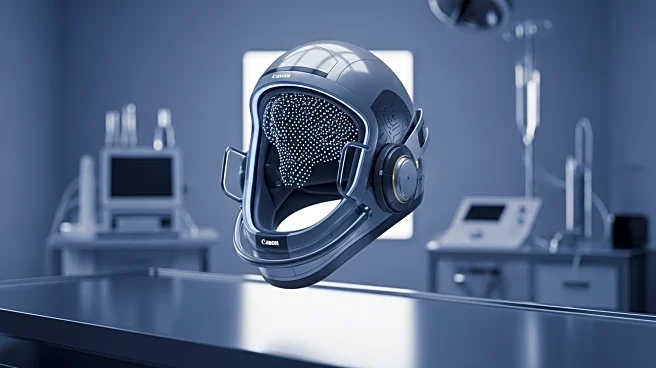What's Happening?
Researchers have developed a new ultrasound helmet that allows for non-invasive modulation of deep-brain circuits, a breakthrough in neuroscience and clinical treatment. The device, which can target areas in the brain with unprecedented precision, offers a non-surgical alternative for studying and treating neurological conditions such as Parkinson's disease and depression. The helmet uses an array of 256 elements to emit focused ultrasound beams, modulating neuronal activity in targeted brain areas. Initial experiments have shown significant shifts in neural activity, suggesting the device's potential for personalized therapies.
Why It's Important?
This technological advancement represents a paradigm shift in neuroscience, providing a safer and more precise method for understanding brain function and developing targeted therapies. The ability to modulate deep-brain structures without surgery could revolutionize treatment for neurological and psychiatric disorders, offering new hope for patients. The device's compatibility with real-time monitoring through fMRI further enhances its potential for clinical applications, allowing for closed-loop neuromodulation and personalized treatment plans.
What's Next?
Further research is needed to fully understand the mechanisms at play and to explore the device's full clinical potential. The technology could lead to new treatment protocols for conditions affecting deep-brain regions, with ongoing studies likely to focus on optimizing its use in clinical settings. The development may also prompt regulatory discussions regarding the approval and implementation of such non-invasive treatments in medical practice.











